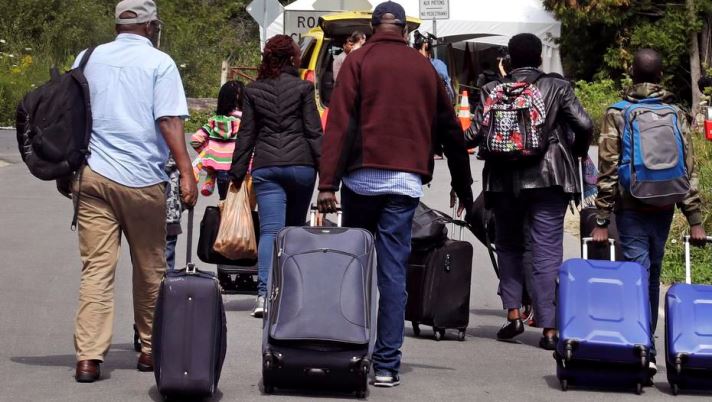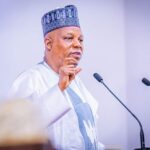The idea of responsible citizenry desires collective and individual loyalty towards their own country, and next to citizens’ dreams for success and trust in a system, these trios engender patience, optimism, and a positive outlook towards the social environment.
For a while now, mass migration of people from resource-constrained to more resource-endowed countries has been a major source of concern beyond the citizens’ expectation question, but also the fading of citizens’ patience, and optimism, as well as the fading of hope for positive dynamics between people, objects, and ideas. Interestingly, this situation is classically reflected in the present Nigerian slogan for mass migration ‘Japa’ a word of Yoruba language origin which means ‘to break loose or run as quick as possible’.
Consequentially, the course of migration, like the one we are witnessing in present-day Nigeria, is important to the course of governance, economics, security, and history of any people. Good governance has been a driver for the best allocation of human capital, which then drives equality in opportunities, heightens security, and a combination of these processes stimulates overall economic growth that retrenches historical inequalities.
To add more canvass to the Nigerian situation, it was reported by the Vanguard Newspaper in its October 4th publication that about 50,000 people migrate from Nigeria annually, many of whom are medical professionals, IT specialists, and other skilled workers. And what is of more concern is data from the PEW research centre that showed that 45 per cent of Nigerians of productive age are equally willing to migrate to more resource-endowed countries in the next five years due to high demand. This data placed Nigeria at the top of the other 12 countries where a similar survey was conducted.
Social media as driving force of drug abuse among youths
Beebeejump provides solar energy to 200,000 homes in rural communities
The U.S Department of State Bureau of Consular Affairs and the Department of Citizenship and Immigration Canada in 2007 and 2009, respectively, attributed this wave of migration to the liberal migration policies of some developed countries, while debates among the migrants and other commentators have hinted at security concerns as another reason for this wave of migration. In all these, even though some economic benefits may accrue to the immigrant’s home country through foreign exchange repatriation, it is barely arguable that the net gain is to the more resource-endowed countries.
Delving deeper into the situation, an approximate explanation of the reason and method of the mass migration from Nigeria could be likened to poor social mobility and uncertainty concerning the security of lives and properties.
In Nigeria, limited social mobility has fettered access to opportunities, constrained the productivity of individuals, and has given rise to repressed economic growth thus continually widening the gap of inequality. Across the country, these inequalities have been socio-culturally celebrated, composing them a stimulant for sustaining poor leadership and low/meaningless community engagement.
In 2018, Nigeria ranked 157th among countries for social mobility on the United Nations Human Development Index (UNDP’S HDI), and in 2020 it will not be among the 82 countries whose social mobility was ranked in order of improvement by the World Economic Forum (WEF). Evidence across several countries with heightened social mobility has shown that those countries have accorded people stability, and opportunity in terms of earning, income alternatives, and class dynamics, as well as improved well-being in terms of security, health, and education.
While migration from a resource-constrained setting like Nigeria to a more resource-endowed one could be a result of the aforementioned factors, it has not been shown that restriction of migration as attempted for medical practitioners by the National Assembly could contribute to better social mobility and then a better citizens’ perception of their social environment. And with the above polemics, it is quite clear that any agreement about a solution towards social mobility in Nigeria could be hard to reach, nonetheless, a good way to weaken symptoms that metaphorically occur together (like the mass migration/Japa syndrome) is to start working on aspects of the phenomenon that can be immediately corrected, block potential confounders, plan and start to address other long-term issues and be sure to formulate a robust monitoring and evaluation plan.
Borrowing from the Global Social Mobility Index (SMI) determinants, it was revealed that most countries including Nigeria underperform in the area of health, education, fair wages, social protection, technology access, work environment/opportunities, and inclusive institutions.
A good way to address the issues of mass migration from Nigeria is, therefore, through engendering hope, optimism, and a positive outlook among citizens, especially targeting the demography that is likely to migrate. Other efforts as noted by the Society of International Development to enhance social mobility should include “a committed attempt to dismantle and recreate the institutions that distribute power and the networks that have emerged to extract benefit from them, de-legitimising people from acquiring excessive wealth and power in the society’’.
Into the bargain and under the guise of human rights and policy change, reforms should also target aspects of ethnic and gender inequalities among others. Succinctly, other efforts should include regulating and restricting money inflow into both conventional and traditional institutions in Nigeria, formulating a more robust and responsive labour law, enforcing an integrated social protection system, implementing a progressive tax system, and a sustained public-private effort toward improvement in availability, quality, and distribution of skills/ education.
In conclusion, these reforms will serve to ensure de-traditionalisation by discouraging practices not in favour of social mobility, also de-institutionalising kakistocracy, and making entities prioritise both purpose and profit for stability across sectors.
As highlighted by Klaus Schwab of the World Economic Forum:
“The social and economic consequences of inequality are profound and far-reaching: a growing sense of unfairness, precarity, perceived loss of identity and dignity, weakening social fabric, eroding trust in institutions, disenchantment with political processes, and an erosion of the social contract. The response by business and government must include a concerted effort to create new pathways to socioeconomic mobility, ensuring everyone has fair opportunities for success.”
This has summed up the Japa syndrome/mass migration of Nigerians, and this article hitherto has recommended some ways to address that.
Shuaib Sani Shuaib is a student at Birmingham City

 Join Daily Trust WhatsApp Community For Quick Access To News and Happenings Around You.
Join Daily Trust WhatsApp Community For Quick Access To News and Happenings Around You.


